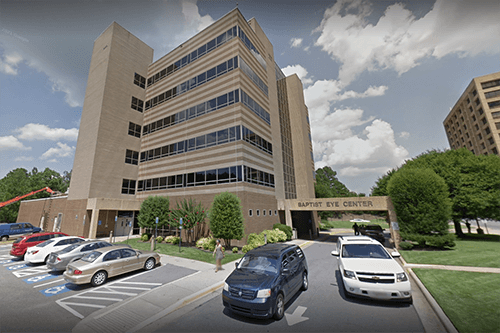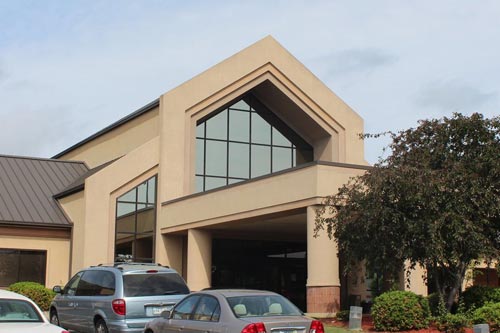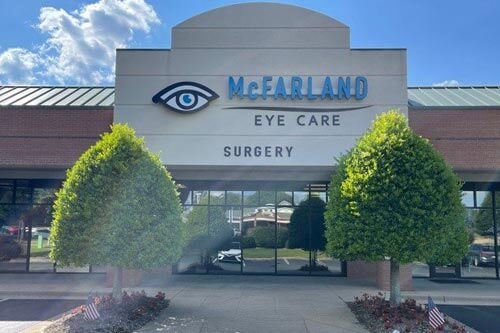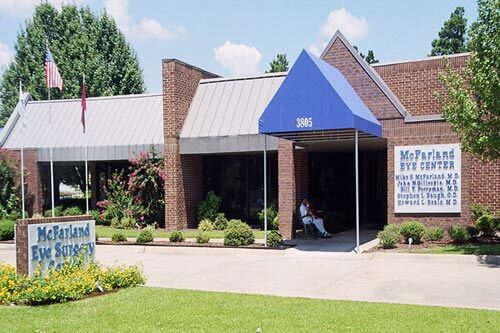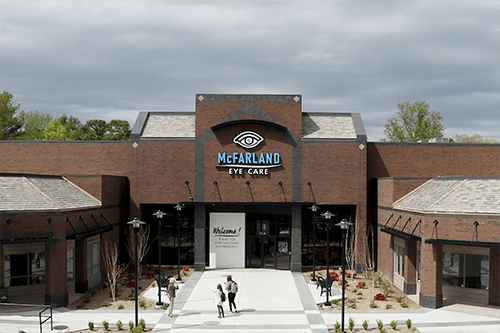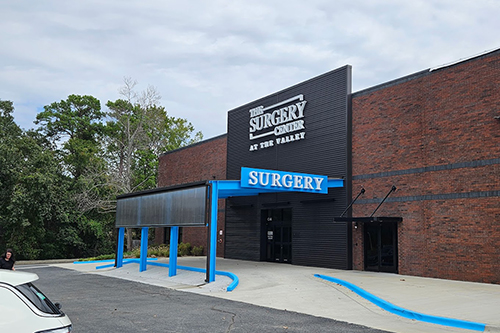If you’ve been considering LASIK surgery to correct your vision, you might have heard about dry eye as a potential concern. The good news is that while LASIK and dry eye can be related, both conditions can be managed effectively, ensuring you can enjoy the benefits of clear vision without the discomfort of dry eyes.
What is LASIK Surgery?
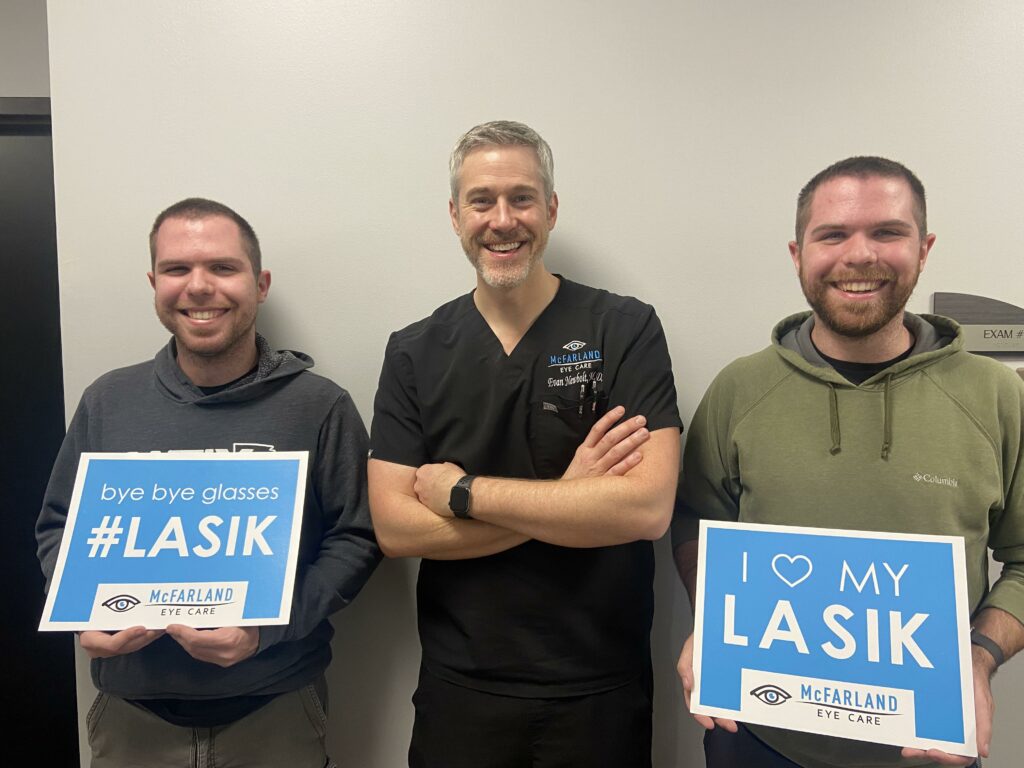
LASIK (Laser-Assisted in Situ Keratomileusis) is a surgical procedure designed to correct nearsightedness, farsightedness, and astigmatism. The procedure involves reshaping the cornea using a laser to improve how light enters the eye, leading to clearer vision. Most patients achieve 20/25 vision or better after the surgery, reducing or eliminating the need for glasses or contact lenses.
However, it’s important to remember that LASIK is a surgery, and as with any surgery, there are no guarantees. While many patients experience excellent results, outcomes can vary, and there are potential risks, including the development of dry eye symptoms.
How Does LASIK Relate to Dry Eye?
Dry eye is a condition in which the eyes don’t produce enough tears, or the tears evaporate too quickly, leading to irritation, redness, and discomfort. LASIK surgery can sometimes cause or exacerbate dry eye symptoms, as it temporarily affects the nerves that control tear production in the cornea. During LASIK, a flap is created in the cornea, which can disrupt these nerves and lead to reduced tear production, especially in the early stages after surgery.
Can LASIK Cause Dry Eye?
Yes, in some cases, LASIK surgery can cause dry eye. However, this is not typical, and many people do not experience dry eye issues after the procedure. If dry eye does occur, the symptoms are typically temporary, with improvement within a few weeks or months as the nerves in the cornea heal. For some individuals, dry eye symptoms can persist for longer periods, but this is less common.
How Dry Eye Affects LASIK Candidates
If you already suffer from dry eye before undergoing LASIK, it’s important to discuss this with your eye care professional. Dry eye can affect your LASIK results and your recovery process, as the healing process depends on having healthy, moist eyes. In some cases, if dry eye is severe, LASIK may not be recommended until the condition is treated and controlled.
Managing Dry Eye
The good news is that even if you experience dry eye after LASIK, there are several treatments and strategies available to manage the symptoms:
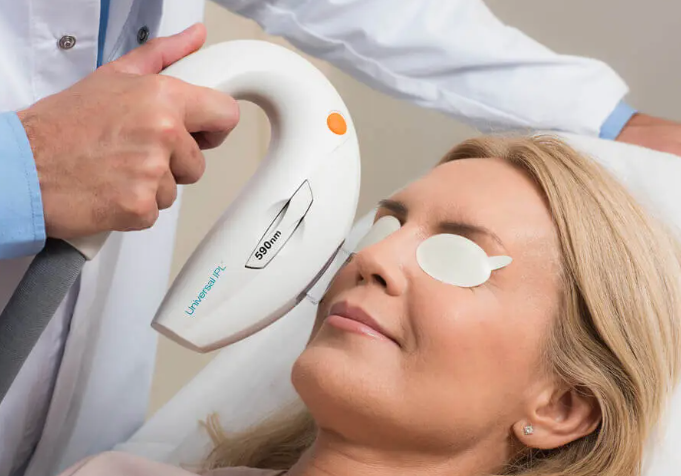
- Artificial Tears: Over-the-counter lubricating eye drops can help alleviate the discomfort of dry eyes and maintain moisture on the surface of the eye.
- Prescription Medications: In some cases, medications like Restasis or Xiidra can be prescribed to increase tear production and reduce inflammation in the eyes.
- Radiofrequency (RF): works by creating heat and the perfect temperature and depth to reach the Meibomian glands and can help unclog glands and reduce lid puffiness. It also helps promote collagen production to tighten skin and reduce inflammation. Patients will be able to create a more balanced tear film and also notice improvement in skin tightness around the eyes which can improve blinking mechanism.
- Intense Pulse Light (IPL) Treatment: IPL uses targeted light to reduce eyelid inflammation, redness, and even skin tone, addressing the root causes of Dry Eye Syndrome.
- Lifestyle Adjustments: Simple changes like using a humidifier, avoiding direct air drafts, and taking frequent breaks from screens can reduce dry eye symptoms.
For other Dry Eye Treatments, we offer, click here.
How We Can Help: LASIK and Dry Eye Treatments at McFarland Eye Care

At McFarland Eye Care, we offer a comprehensive approach to both LASIK surgery and dry eye management. Our experienced LASIK surgeon, Dr. Evan Newbolt, specializes in providing customized LASIK treatments to ensure the best possible outcome for each patient. If dry eye is a concern, our Dry Eye Specialist, Dr. Shelby Brogdon, offers advanced treatments to help manage and alleviate dry eye symptoms, before and after LASIK.
In Conclusion
For those dealing with persistent dry eye, there are effective treatments available that can help you enjoy both healthy vision and comfort—contact us today to schedule a consultation and find the right solution for you. It’s crucial to remember that LASIK is a surgery, and like all surgeries, there are no guarantees. Not everyone will develop dry eye.

